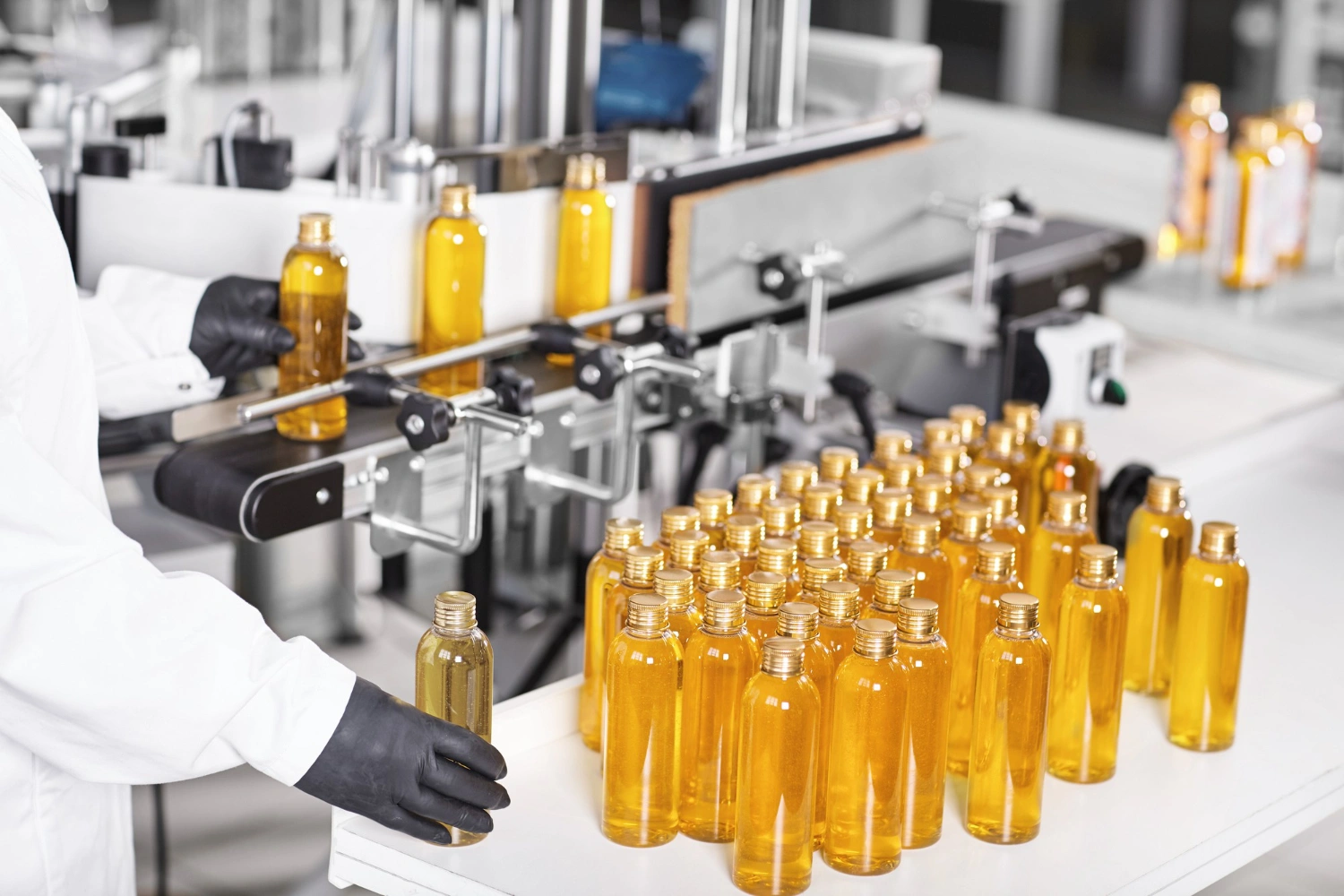A high-volume bottling line runs like a living machine—every conveyor, filler, and sensor must work in sync to meet production goals. Yet achieving that level of harmony depends on precise automation. That’s where a custom PLC, or programmable logic controller, transforms the process. Designed and configured by skilled control system integrators, it serves as the central nervous system that keeps the entire operation steady, responsive, and remarkably efficient.
Table of Contents
Streamlined Bottle Filling Through Precise Cycle Control
Filling thousands of bottles per hour demands precision timing and flow control. A custom PLC monitors and synchronizes the valves, pumps, and actuators to maintain a uniform fill level across every bottle. This type of automation minimizes overfills and underfills, reducing waste while ensuring that each container meets exact volume specifications.
What sets an advanced Rockwell Allen Bradley PLC apart is its ability to respond to microsecond-level feedback. This real-time control fine-tunes the fill cycles automatically, even as product viscosity, temperature, or line speed changes. By adjusting on the fly, the system keeps output consistent without requiring constant manual oversight—a direct result of thoughtful PLC programming designed around the production environment.
Downtime Reduced with Smarter Fault Detection
Unexpected stoppages are one of the costliest issues in bottling operations. A custom PLC prevents prolonged downtime by continuously analyzing system behavior and pinpointing faults the instant they occur. Instead of shutting down the entire line, it isolates the affected area, allowing operators to address the issue without halting production completely.
Control system integrators build diagnostic routines into the PLC programming that detect irregular sensor signals, mechanical wear, or communication errors early. This proactive fault detection means the line can resume normal operation faster, cutting repair times and saving hours of lost productivity. Over time, these predictive functions reduce maintenance costs and help extend the lifespan of the equipment.
Conveyor Coordination Enhanced for Continuous Flow
Conveyors act as the arteries of a bottling line, and any imbalance can disrupt the entire rhythm. A custom PLC maintains a smooth transition between conveyors, ensuring bottles move seamlessly from one stage to another without bottlenecks or collisions. It regulates motor speeds and aligns timing between zones to preserve a balanced flow.
What is PLC programming if not the art of synchronizing motion? Through advanced programming techniques, auto-tuning algorithms keep conveyor operations aligned with the pace of fillers, cappers, and labelers. This coordination minimizes accumulation points and prevents product damage, which is especially valuable for fragile glass or thin plastic bottles.
Labeling Accuracy Maintained Across Production Runs
The labeling process relies on flawless alignment between moving bottles and label application mechanisms. A custom PLC uses encoder feedback and optical sensors to ensure labels are placed correctly every single time. Even a small misalignment at high speeds can waste hundreds of labels and require rework.
A Rockwell Allen Bradley PLC configured by experienced engineers adjusts timing and label feed rate dynamically. It compensates for variances in conveyor speed or label roll tension, sustaining accuracy throughout extended production runs. That precision eliminates unnecessary downtime for calibration, keeping throughput high and costs under control.
Real-time Adjustments Applied for Line Balancing
Bottling lines operate at variable speeds depending on production demand. A custom PLC constantly analyzes performance data and redistributes power, pressure, and timing between sections of the line to maintain balance. This ensures that no single station becomes a bottleneck that slows down the rest. PLC programming allows the system to react instantly to changes—whether that’s an increased fill rate or a temporary pause in packaging.
The control logic adapts automatically, harmonizing output without manual intervention. Such real-time adaptability transforms efficiency, particularly in high-demand settings where every second counts.
Operator Workload Minimized Through Intuitive Interfaces
Modern PLC systems are designed not just for machines but for the people who operate them. Custom interfaces built by control system integrators simplify complex data into easy-to-understand visuals. Operators can monitor performance metrics, receive alerts, and make adjustments without deep technical training. This user-centered design minimizes mental strain and reduces human error. A PLC programming company develops touchscreen dashboards and control panels tailored to the workflow of the bottling team. The result is smoother communication between human operators and the automated system, enabling faster responses and more confident decision-making.
Waste Levels Lowered Through Controlled Dispensing
Product waste directly affects profit margins, especially in beverage production. A custom PLC uses sensor feedback to control dispensing volumes with exceptional accuracy. It monitors flow rates and instantly corrects any deviation to maintain consistent fill levels, even under variable pressure conditions.
Advanced PLC programming ensures each component—valves, pumps, and actuators—responds proportionally to real-time measurements. Overproduction and spillage drop dramatically because the system fine-tunes output at every cycle. Over months of operation, this precision translates into measurable cost savings and more sustainable production practices.
Also Read : Water Intrusion Problems Solved with Roof Repair Near Me Services
Production Consistency Sustained Under High Demand
High-speed bottling environments test the limits of both machinery and automation systems. A custom PLC keeps consistency at the forefront by coordinating all machine operations within milliseconds. Whether during peak hours or continuous shifts, it preserves uniformity across thousands of bottles.
Control system integrators often configure Rockwell Allen Bradley PLC systems to store and recall optimized recipes for each product type. This capability allows instant changeovers without disrupting performance. Consistency remains intact even as the line switches between different bottle sizes, labels, or liquid types, ensuring dependable output and maintaining quality expectations.
